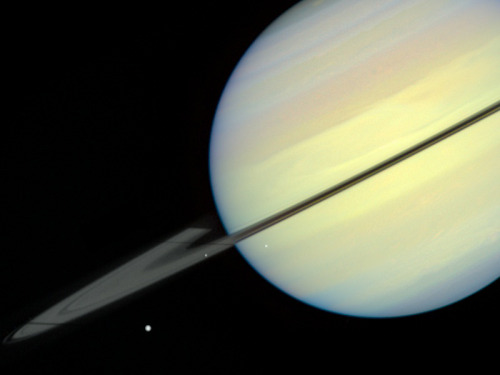Astronomy Photo Of The Day: 5/30/15 — Vividly Blue NGC 7822
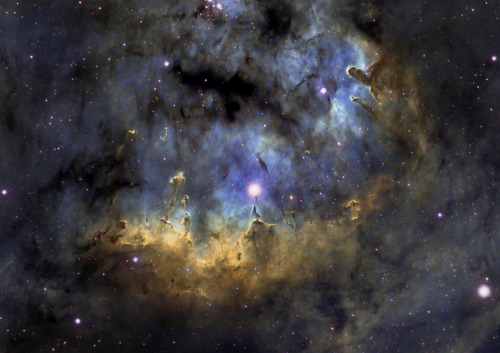
Astronomy Photo of the Day: 5/30/15 — Vividly Blue NGC 7822
This beautifully blue image comes from Manuel Fernández Suarez—an award winning astrophotographer. It provides a window into the heart of a stellar nursery, found approximately 3,000 light-years from Earth in the Cepheus constellation.
Called NGC 7822, it lurks on the outskirts of a behemoth molecular cloud (one of the largest in our galaxy), and contains numerous features, like the star cluster known as Berkeley 59, along with one of the hottest stars in our local part of the galaxy—called BD+66 1673 (there, temperatures can exceed 45,000 K).
As we noted before, “The region, formally known as NGC 7822, contains hundreds of newborn stars that are leaving their own mark on the interstellar material surrounding them, seeding it with heavy elements that will ultimately collapse to give life to a new generation of stars. These same stars are also slowly chipping away at some of the material, they in turn, give it its distinct shape and its designation as an emission nebula.”
Sources & Other Resources: http://bit.ly/1LPOf5M
Image Credit: Manuel Fernández Suarez
More Posts from Xnzda and Others
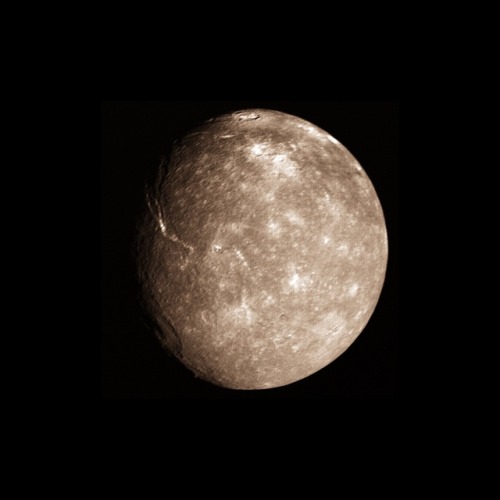

Two moons of Uranus: Titania and Oberon. Both moons were discovered by William Herschel in 1787.
Credit: NASA/JPL
What Happened to Mars?
Billions of years ago, Mars was a very different world. Liquid water flowed in long rivers that emptied into lakes and shallow seas. A thick atmosphere blanketed the planet and kept it warm.

Today, Mars is bitter cold. The Red Planet’s thin and wispy atmosphere provides scant cover for the surface below.

Our MAVEN Mission
The Mars Atmosphere and Volatile EvolutioN (MAVEN) mission is part of our Mars Scout program. This spacecraft launched in November 2013, and is exploring the Red Planet’s upper atmosphere, ionosphere and interactions with the sun and solar wind.

The purpose of the MAVEN mission is to determine the state of the upper atmosphere of Mars, the processes that control it and the overall atmospheric loss that is currently occurring. Specifically, MAVEN is exploring the processes through which the top of the Martian atmosphere can be lost to space. Scientists think that this loss could be important in explaining the changes in the climate of Mars that have occurred over the last four billion years.
New Findings
Today, Nov. 5, we will share new details of key science findings from our ongoing exploration of Mars during a news briefing at 2 p.m. EDT. This event will be broadcast live on NASA Television. Have questions? Use #askNASA during the briefing.
Make sure to follow us on Tumblr for your regular dose of space: http://nasa.tumblr.com
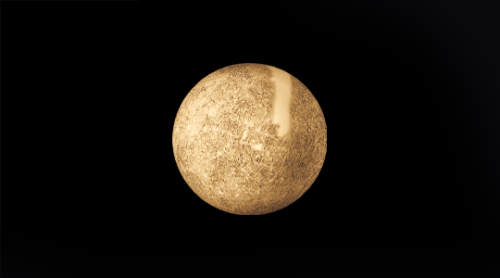
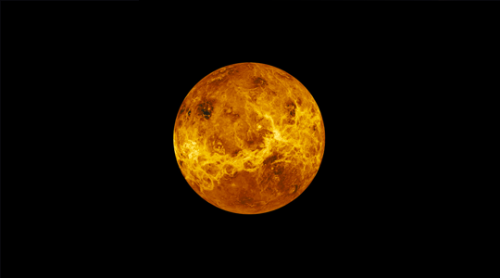

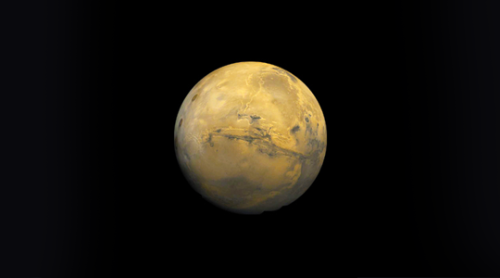
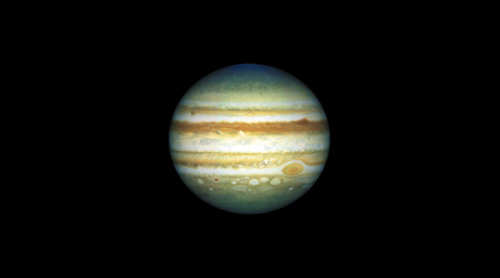
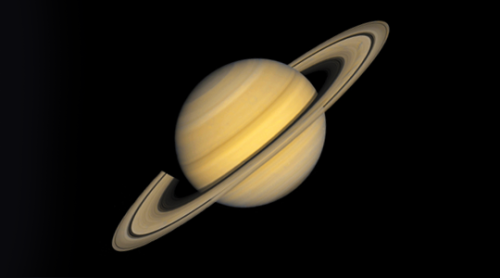

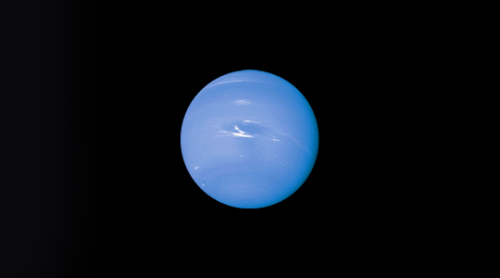
All here… Sorry, Pluto, you don’t belong here
PS: I do follow back
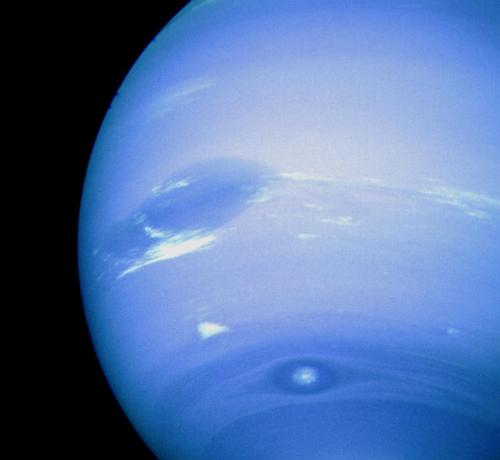
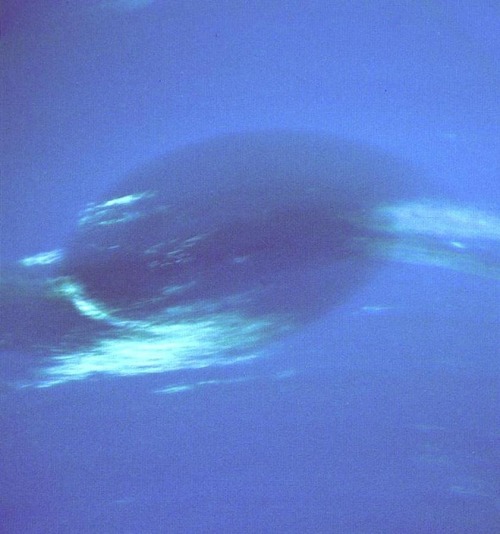
This photograph of Neptune was reconstructed from two images taken by Voyager 2’s narrow-angle camera, through the green and clear filters. At the north (top) is the Great Dark Spot, accompanied by bright, white clouds that undergo rapid changes in appearance.
Credit: NASA

DAT MILKY WAY

Bright stars of Sagittarius and the center of our Milky Way Galaxy lie just off the wing of a Boeing 747
js
Five-dimensional black hole could 'break' general relativity
Cambridge UK (SPX) Feb 19, 2016 Researchers have shown how a bizarrely shaped black hole could cause Einstein’s general theory of relativity, a foundation of modern physics, to break down. However, such an object could only exist in a universe with five or more dimensions. The researchers, from the University of Cambridge and Queen Mary University of London, have successfully simulated a black hole shaped like a very thi Full article

#BlackHistoryMonth #tbt: Being the first African American woman to travel to space is one of Mae Jemison’s many accomplishments. A dancer, Peace Corps doctor, public speaker and astronaut, Mae went to college at age 16, holds 9 honorary doctorates and has founded many STEM-related programs for students.
-
 xnzda reblogged this · 5 years ago
xnzda reblogged this · 5 years ago -
 sayallfiend liked this · 6 years ago
sayallfiend liked this · 6 years ago -
 harleyn0va reblogged this · 7 years ago
harleyn0va reblogged this · 7 years ago -
 harleyn0va liked this · 7 years ago
harleyn0va liked this · 7 years ago -
 desirekeepsburnin reblogged this · 8 years ago
desirekeepsburnin reblogged this · 8 years ago -
 jxxella liked this · 8 years ago
jxxella liked this · 8 years ago -
 tiranosauriosrex liked this · 8 years ago
tiranosauriosrex liked this · 8 years ago -
 siderealtime reblogged this · 8 years ago
siderealtime reblogged this · 8 years ago -
 benoitdavroux liked this · 9 years ago
benoitdavroux liked this · 9 years ago -
 vexhydrasekrion reblogged this · 9 years ago
vexhydrasekrion reblogged this · 9 years ago -
 esperando-estoy liked this · 9 years ago
esperando-estoy liked this · 9 years ago -
 peaceandspace reblogged this · 9 years ago
peaceandspace reblogged this · 9 years ago -
 anibxx-blog liked this · 9 years ago
anibxx-blog liked this · 9 years ago -
 fandom-trash-41102-blog liked this · 9 years ago
fandom-trash-41102-blog liked this · 9 years ago -
 thathaolegirl liked this · 9 years ago
thathaolegirl liked this · 9 years ago -
 anonymousmyles liked this · 9 years ago
anonymousmyles liked this · 9 years ago -
 alienworldsgateway reblogged this · 9 years ago
alienworldsgateway reblogged this · 9 years ago -
 tsurava liked this · 9 years ago
tsurava liked this · 9 years ago -
 jimmy-jim-consulting-crimin-blog liked this · 9 years ago
jimmy-jim-consulting-crimin-blog liked this · 9 years ago -
 libraryofficial reblogged this · 9 years ago
libraryofficial reblogged this · 9 years ago -
 libraryofficial liked this · 9 years ago
libraryofficial liked this · 9 years ago -
 headlessbutnotqueueless reblogged this · 9 years ago
headlessbutnotqueueless reblogged this · 9 years ago -
 9lithra9 reblogged this · 9 years ago
9lithra9 reblogged this · 9 years ago -
 cosmik-boy-blog liked this · 9 years ago
cosmik-boy-blog liked this · 9 years ago -
 noscm1224no-blog reblogged this · 9 years ago
noscm1224no-blog reblogged this · 9 years ago -
 hidewari reblogged this · 9 years ago
hidewari reblogged this · 9 years ago -
 nellyescati liked this · 9 years ago
nellyescati liked this · 9 years ago -
 niecey-naptural liked this · 9 years ago
niecey-naptural liked this · 9 years ago -
 chlorinesoup reblogged this · 9 years ago
chlorinesoup reblogged this · 9 years ago -
 paintedthoughtss liked this · 9 years ago
paintedthoughtss liked this · 9 years ago -
 thescentofthewild reblogged this · 9 years ago
thescentofthewild reblogged this · 9 years ago -
 pulsar18 liked this · 9 years ago
pulsar18 liked this · 9 years ago


